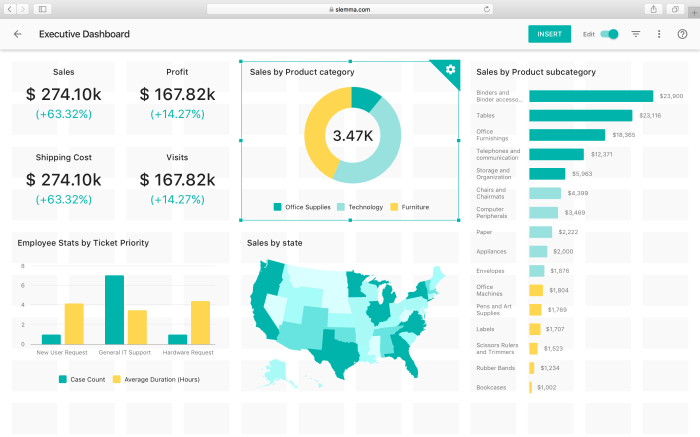Real estate CRM software is revolutionizing how agents manage clients and transactions. It’s more than just a database; it’s a powerful tool for building lasting relationships, increasing efficiency, and ultimately boosting profitability. This software empowers agents to stay organized, track leads effectively, and personalize interactions with clients, ultimately leading to higher conversion rates.
This software allows for comprehensive management of client interactions, property listings, and market analysis. From lead generation to closing deals, real estate CRM software provides a centralized platform to streamline the entire process. It also integrates with other essential tools, enhancing productivity and providing a holistic view of the business.
Real estate is a dynamic industry, demanding efficient management of client interactions, property listings, and transactions. Real estate CRM (Customer Relationship Management) software plays a crucial role in streamlining these processes, boosting productivity, and ultimately driving success. This comprehensive guide dives deep into the world of real estate CRM software, exploring its features, benefits, and how it can revolutionize your business.
Understanding the Importance of Real Estate CRM Software
In today’s competitive real estate market, managing multiple clients, properties, and transactions manually is practically impossible. Real estate CRM software provides a centralized platform for all your crucial information, allowing you to stay organized, track progress, and ultimately close deals faster. This centralized approach minimizes errors, improves communication, and fosters stronger client relationships. The ability to manage leads, track interactions, and automate tasks is paramount to staying ahead of the curve in this industry.
Key Features to Look For in Real Estate CRM Software
- Lead Management: Effectively capturing and organizing leads from various sources (online portals, referrals, etc.) is critical. CRM software should offer tools for lead scoring, nurturing, and qualification.
- Property Management: Managing details of properties, including photos, descriptions, and relevant documents, is essential. The system should allow for easy updating and access.
- Client Relationship Management: Tracking client interactions, communication history, and preferences is vital for building strong relationships. Features like email integration, automated follow-ups, and personalized communication templates are key.
- Transaction Management: Streamlining the entire transaction process from offer to closing is crucial. CRM software should facilitate tracking of documents, deadlines, and communication related to each transaction.
- Marketing Automation: Automating marketing campaigns, email sequences, and social media posts can significantly enhance your reach and efficiency. This feature is especially beneficial for real estate agents.
- Reporting and Analytics: Access to insightful reports and data analysis is vital for making informed decisions. CRM software should offer detailed reports on leads, transactions, and client interactions.
- Integration with Other Tools: Integration with other tools like email marketing platforms, property portals, and accounting software can save significant time and improve workflow.
Benefits of Implementing Real Estate CRM Software
The advantages of using real estate CRM software are numerous and impactful. From improved client relationships to increased efficiency, the benefits can significantly boost your bottom line. Implementing a robust CRM solution can lead to:
- Enhanced Productivity: Automation of tasks and streamlined workflows can free up valuable time for agents to focus on more strategic activities.
- Improved Client Satisfaction: Personalized communication and efficient service lead to happier and more loyal clients.
- Increased Revenue: Improved lead management, more efficient transactions, and better client relationships contribute to higher sales figures.
- Reduced Errors: Centralized data and automated processes minimize the chance of human error.
- Better Data Analysis: In-depth reporting and analytics provide actionable insights to improve strategies and optimize performance.
Choosing the Right Real Estate CRM Software
Selecting the right real estate CRM software is crucial for success. Consider factors like budget, features, scalability, and ease of use. Do thorough research and compare different options based on your specific needs and requirements.
Tips for Choosing the Right CRM Software, Real estate crm software
- Define Your Needs: Clearly Artikel your specific requirements and prioritize the features that matter most to your business.
- Read Reviews: Gather feedback from other users to gain insights into the software’s effectiveness and user experience.
- Request Demos: Schedule demos with potential providers to evaluate the software’s functionality and usability firsthand.
- Consider Scalability: Choose a system that can grow with your business and adapt to your evolving needs.
FAQ
- Q: What is the cost of real estate CRM software?
- A: Real estate CRM software costs vary significantly depending on features, vendor, and user volume. It’s essential to compare pricing models and get detailed quotes from potential providers.
- Q: How long does it take to implement real estate CRM software?
- A: Implementation timelines vary depending on the complexity of the system and your team’s technical expertise. Plan for adequate time for training and data migration.
- Q: Can real estate CRM software integrate with other tools?
- A: Most modern real estate CRM software offers integrations with various tools, such as email marketing platforms, property portals, and accounting software. Ensure compatibility with your existing tools before selecting a system.
Conclusion and Call to Action
Real estate CRM software is a powerful tool that can transform your business by improving efficiency, streamlining processes, and enhancing client relationships. By carefully evaluating your needs and selecting the right software, you can significantly boost your productivity, increase revenue, and achieve long-term success in the real estate industry.
Ready to elevate your real estate business? Contact us today to explore how our tailored CRM solutions can help you thrive.
Disclaimer: This article is for informational purposes only and should not be considered professional advice. Always conduct your own research and consult with relevant professionals before making any decisions.

Source: technologyadvice.com
In conclusion, real estate CRM software offers a robust solution for modern real estate professionals. By centralizing crucial information, automating tasks, and personalizing interactions, this technology empowers agents to focus on building relationships and driving success. The advantages of using such a system are clear, leading to increased efficiency, higher conversion rates, and ultimately, a more profitable and satisfying business.
Questions Often Asked: Real Estate Crm Software
What are the different types of real estate CRM software available?
Several types of CRM software cater to various real estate needs. Some are designed for individual agents, while others are tailored for larger agencies. Features can vary, including lead management, property listings, communication tools, and reporting capabilities.
How much does real estate CRM software typically cost?

Source: winklix.com
Pricing for real estate CRM software varies significantly depending on the features offered, the number of users, and the chosen subscription model. It’s crucial to compare different options and consider your specific needs and budget before committing.
Can real estate CRM software integrate with other tools?
Many real estate CRM platforms are designed with integrations in mind. This allows seamless data flow between the CRM and other essential tools, such as email marketing platforms, property management systems, and accounting software.